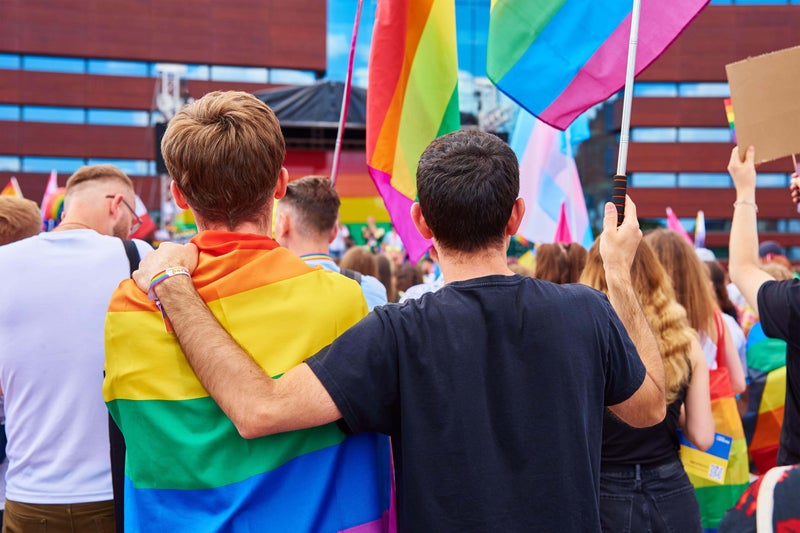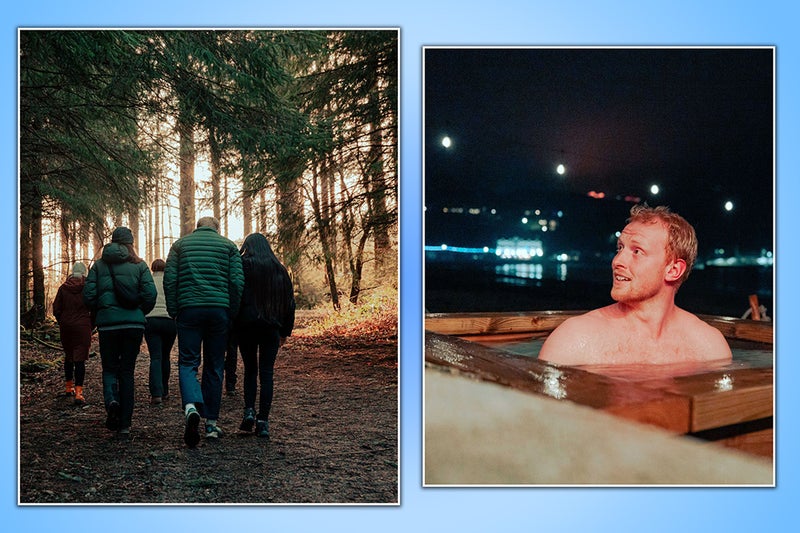The Pride march is perfectly silent as the beautiful chaos of India erupts around us – the beeps of speeding tuk tuks, the calls of street vendors selling pav bhaji and panipuri, the playful barks of street dogs weaving between the crowds. Mumbai is as noisy as ever, but the people in the parade walk without a sound. This year, I’m on a journey to visit Pride events across the world, and after skiing a rainbow flag down the icy slopes of Whistler, I hopped on a flight to defrost in the fiery heat of the ‘City of Dreams’.

Pride is usually loud – dancing, music, defiant chants of resistance. But as I walk in step with India’s vibrant queer community, I’m struck by the power of taking this moment to quietly reflect. ‘We observe silence to express our gratitude to all the people – all over the world – who have lost their lives while fighting for equal rights,’ Saurabh Bondre, one of the organisers of Mumbai Queer Pride, tells Metro.
![[I?m doing 20 Prides on 7 continents Map]](https://metro.co.uk/wp-content/uploads/2025/02/SEI_238644168-49d9.jpg?quality=90&strip=all&w=646)
It’s a powerful statement, and an important one, because India’s fight for for LGBT+ acceptance has been hard won. After a long and fraught battle towards equality, India first decriminalised homosexuality in 2009, only for the ruling to be overturned four years later. Queer communities were falsely given the green light to be themselves; their world was shattered when their identities became outlawed once more.

Many were put in dangerous positions, while others had no choice but to go back into the closet. It was a painful five years until homosexuality was decriminalised for a second time in 2018. Hopefully this time, for good. With thousands of members from all over the world, our vibrant LGBTQ+ WhatsApp channel is a hub for all the latest news and important issues that face the LGBTQ+ community. Simply click on this link, select ‘Join Chat’ and you’re in! Don't forget to turn on notifications!.
As one of the only countries in the world to reverse decriminalisation, India’s queer communities stand as a warning to others that LGBT+ rights are never guaranteed. Here, they are acutely aware of the fragility of their freedom. They are determined to push global equality forward, at a time when minority rights everywhere are increasingly under threat. This year’s official Mumbai Queer Pride slogan serves as a rallying cry: as it says, there is ‘No Going Back’.
Calum McSwiggan, author of Eat Gay Love, is a man on a mission. He plans to spend 2025 exploring how the LGBT+ community is celebrated everywhere on Earth: 12 months, 7 continents, 20 Prides. In an exclusive Metro series, Calum will journey from the subzero climes of Antarctica to the jewel-toned streets of Mumbai, telling the story of Pride around the world. Follow his journey on Metro, in print and on our socials to learn how Pride is celebrated around the world. Next up? Sydney, Australia.
Before the march begins, speakers take to the stage to echo this sentiment, calling out the 65 countries that still criminalise queer identities. Russia’s ‘gay propaganda ban’ is lambasted, while the recent dismantling of trans rights in the US draws fury from the crowd. It’s clear they care about queer freedom everywhere. ‘Indian culture is often touched by western cultural shifts,’ transgender filmmaker Rayyan Monkey explains.
‘While there has been progress in terms of inclusion, for instance more sensitive and positive attempts at transgender representation in cinema, the American government’s dismantling of LGBT+ rights is coming through and affecting us here. In the last six months, we’ve seen a significant decline in support.’. It’s something I feel during my time in Mumbai. In many circles, it’s evident that the LGBT+ community is still seen as culturally taboo.
The night before Pride, I meet a local and his husband at the hotel bar. They were married in Germany, and live an open life overseas, but when they return to India they keep their relationship private. ‘We can’t go to the march,’ they tell me. ‘We can’t be seen there. We have to be discreet.’. The idea of masking our identities is nothing new. Research from Booking.com shows 41% of LGBTQ+ travellers have created an alter-ego to safely navigate different environments, and this seems to be the reality for many living in India.
It is all the more meaningful, then, to see thousands of people show up on the streets of Mumbai. They haven’t come in plain clothes either, they’ve dressed up, ready to make a statement. Traditional South Asian clothing is worn with gender non-conformity; some wear chandras – a crescent moon-shaped bindi that represents femininity – while others don saris, lehengas, and rainbow turbans. Lesbian content creators Nick and Sayantika stand out amongst the crowd in feathered corsets. They share their relationship online, and they think it’s also important to bring visibility to the streets.































